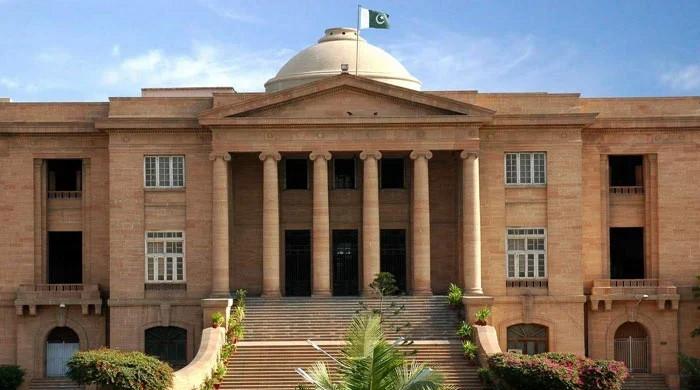Sindh High Court Urges Preservation of National Unity Amid Canal Dispute
KARACHI: The Sindh High Court (SHC) on Friday instructed both the Sindh provincial government and the federal government to ensure the preservation of national unity amidst ongoing disagreements regarding canal issues.
The directive was issued during a hearing concerning a petition filed against the water availability certificate granted by the Indus River System Authority (IRSA) for the construction of new canals in the Thal and Cholistan regions.
IRSA had given the go-ahead for water supply to the Cholistan Canal System project and also provided a water availability certificate to the Punjab government, despite objections from Sindh.
As per the approval, Punjab was authorized to proceed with the Cholistan Canal project, originating from the Sutlej River at Sulemanki Headworks. IRSA stated that this would provide access to 450,000 acre-feet of water, which has been described as unfair to Sindh.
The certificate, issued on January 25, was challenged by the petitioner’s lawyer, who argued that the very establishment of IRSA was unlawful.
In a previous hearing, the SHC had suspended IRSA’s approval for canal construction and requested a response from the federal government on the matter.
During the hearing today, the IRSA secretary, Sindh advocate general, additional attorney general, and other relevant parties were present.
The court inquired about the appointment of a federal member from Sindh to IRSA. The AAG responded that the court order did not specify such a requirement. However, Justice Faisal Kamal Alam pointed out that the court’s directive already existed.
The SHC questioned the delay in implementing the court’s order.
The AAG requested additional time to submit a response, noting that an appeal to the Supreme Court had been dismissed due to lack of follow-up. He mentioned ongoing efforts to locate certain court orders and documents.
“You are well aware of the present circumstances,” the court stated, emphasizing the need for a conclusive resolution and stressing the significance of national unity.
The court further inquired whether government officials were cognizant of the issue’s sensitivity.
The petitioner’s counsel pointed out that IRSA’s headquarters had been relocated from Lahore to Islamabad.
The Sindh AG asserted that IRSA’s present composition was impacting decision-making capabilities.
The IRSA secretary clarified that appointing a member was beyond their authority, as per the court’s decision, and that the headquarters relocation was carried out under an ordinance.
The petitioner’s counsel claimed a reduction in Sindh’s water allocation.
The court stated it would limit its actions to enforcing judicial orders.
The court asked whether any construction was currently underway on the canals. The AAG responded that all work had ceased following the court’s stay order.
The court emphasized that safeguarding national unity must remain a paramount concern, describing the case as “not just any ordinary matter.” The federal government would be granted additional time, contingent upon compliance with court directives.
The SHC then instructed the Sindh and federal governments to ensure the preservation of national unity. It also reiterated the requirement for a federal member from Sindh to be appointed to IRSA, in accordance with the court’s order.
“A legal revision should be enacted, if deemed necessary, to reach a permanent solution on this issue,” the court remarked.
The court then adjourned the hearing until April 29, extended the stay order, and requested a response from the federal government by the specified date.
It should be noted that the Cholistan Canal project has become a contentious issue between the federal and provincial governments since the federal government announced its intention to construct six canals on the Indus River for irrigation purposes in the Cholistan desert.
The plan faced explicit rejection from its primary ally, the Pakistan Peoples Party (PPP), as well as various Sindh nationalist parties.
Government sources estimate the cost of the Cholistan canal system to be approximately Rs211.4 billion, potentially bringing 400,000 acres of land under cultivation.
Numerous political and religious parties, nationalist groups, and civil society organizations organized widespread demonstrations across Sindh in opposition to the controversial project.
The PPP, led by Bilawal Bhutto Zardari, has consistently voiced concerns about the project, with President Asif Ali Zardari cautioning the government that certain unilateral policies are exerting “significant strain” on the federation.



Comments (0)
No comments yet. Be the first to comment!
Leave a Comment